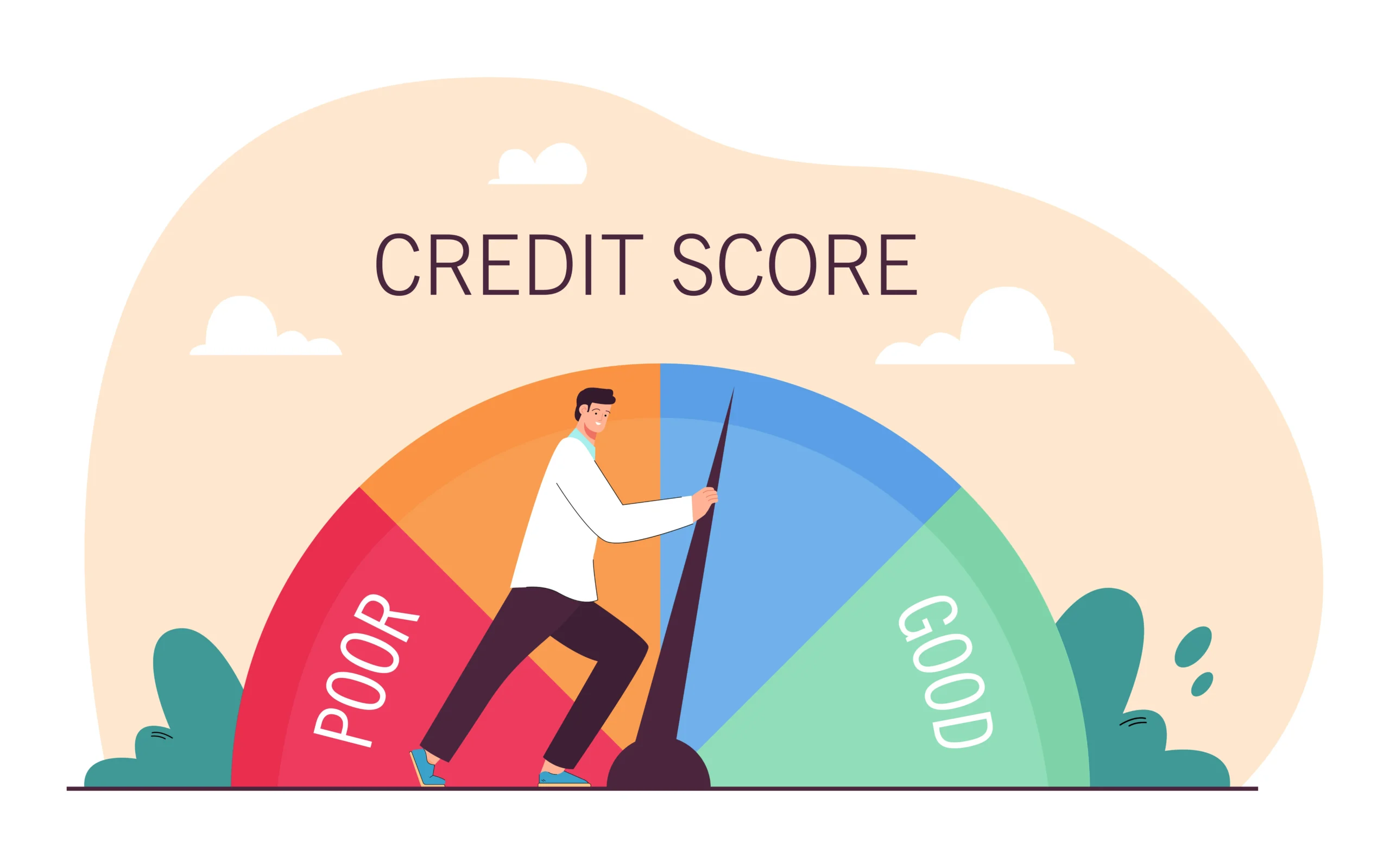Introduction
Smart finance management is more than just budgeting and saving—it’s the foundation of a secure, prosperous future. Whether you’re a recent graduate, a working professional, or a business owner, managing your finances wisely can be the difference between financial stress and financial freedom. In an increasingly uncertain global economy, adopting smart financial strategies is essential to achieving long-term stability and reaching personal or professional goals.
In this comprehensive guide, we explore how smart finance management can secure your future, from setting goals and building savings to making strategic investments and planning for retirement. Let’s explore how thoughtful, disciplined financial decisions can positively impact every stage of your life.
Key Takeaways
- Smart finance management is essential for long-term financial security.
- Create a roadmap by setting clear financial goals and milestones.
- Budgeting is the cornerstone of effective money management.
- Build an emergency fund to cushion against financial shocks.
- Invest early and wisely to grow wealth.
- Manage debt to maintain financial flexibility.
- Plan for retirement to ensure future comfort and independence.
- Stay financially educated to adapt and thrive in changing conditions.
Understanding Smart Finance Management
Smart finance management involves a combination of budgeting, saving, investing, debt control, risk management, and long-term planning. It means being proactive rather than reactive with your money. Instead of simply reacting to financial challenges as they arise, smart finance management helps you plan for them and reduce their impact.
Key components include:
- Setting Financial Goals: Short-, medium-, and long-term.
- Budgeting: Tracking income and expenses to optimize cash flow.
- Saving: Building an emergency fund and setting aside money for future use.
- Investing: Growing wealth through stocks, bonds, real estate, or mutual funds.
- Debt Management: Minimizing high-interest debt and maintaining a healthy credit score.
- Insurance and Risk Management: Protecting assets against unforeseen events.
Creating a Financial Roadmap
To manage your finances effectively, you need a financial roadmap. This roadmap outlines your current financial situation and charts the path to where you want to be.
Steps to create a roadmap:
- Assess Your Current Financial Situation: Review income, expenses, debts, and assets.
- Set SMART Goals: Specific, Measurable, Achievable, Relevant, and Time-bound.
- Identify Financial Milestones: Buying a home, starting a business, or planning a family.
- Plan for Life Changes: Marriage, children, relocation, or retirement.
- Monitor Progress Regularly: Adjust your strategy as needed.
A clear roadmap helps you avoid detours and remain focused on your financial priorities.
Budgeting Wisely: The First Step to Control
Budgeting is the foundation of smart finance management. A well-structured budget shows you where your money is going and reveals opportunities to save or invest more.
Popular budgeting methods:
- 50/30/20 Rule: 50% needs, 30% wants, 20% savings/debt repayment.
- Zero-Based Budgeting: Every dollar is assigned a job.
- Envelope System: Cash-based categories to control spending.
Benefits of budgeting:
- Prevents overspending
- Helps identify wasteful expenses
- Encourages saving
- Reduces financial anxiety
Creating and sticking to a budget empowers you to take control of your money instead of letting it control you.
Building an Emergency Fund
An emergency fund acts as a financial safety net, protecting you from unexpected expenses such as medical emergencies, car repairs, or job loss.
How much should you save?
- Aim for 3 to 6 months’ worth of essential living expenses.
Tips to build an emergency fund:
- Automate savings transfers
- Start small and increase gradually
- Save tax refunds or bonuses
Having an emergency fund prevents you from relying on credit cards or loans during crises, preserving your financial health.
Investing for the Future
Investing is a powerful tool for building wealth over time. It allows your money to grow through compound interest and market gains.
Popular investment options:
- Stocks: Ownership in companies
- Bonds: Loans to governments or corporations
- Mutual Funds/ETFs: Diversified portfolios
- Real Estate: Property investments
- Retirement Accounts: 401(k), IRA, PPF, etc.
Smart investing tips:
- Start early to benefit from compounding
- Diversify your portfolio
- Invest consistently (rupee or dollar-cost averaging)
- Align investments with risk tolerance and goals
Investing intelligently can help you reach milestones such as home ownership, children’s education, or a comfortable retirement.
Managing Debt Responsibly
Debt, if unmanaged, can derail your financial future. However, not all debt is bad. Strategic borrowing (e.g., for education or property) can be a stepping stone to success.
Tips for debt management:
- Prioritize high-interest debt (credit cards, personal loans)
- Consolidate or refinance loans when possible
- Avoid taking new debt unless necessary
- Make more than the minimum payment
Maintaining a low debt-to-income ratio and good credit score ensures financial flexibility and lowers borrowing costs.
Planning for Retirement
Retirement planning is crucial to ensure you maintain your lifestyle and independence when you stop working.
Strategies to secure your retirement:
- Start contributing early to retirement accounts
- Take advantage of employer contributions
- Invest in long-term growth assets
- Review retirement goals regularly
Don’t rely solely on pensions or government benefits. A proactive retirement plan will provide peace of mind and financial freedom in your later years.
Staying Financially Educated
Financial literacy empowers you to make informed decisions. Stay updated with changes in tax laws, investment trends, and personal finance strategies.
Ways to stay financially educated:
- Read personal finance books and blogs
- Attend webinars and workshops
- Consult certified financial planners
- Follow trusted financial news sources
Continuous learning is key to adapting your strategies to changing circumstances and opportunities.
What Are the Pillars of Personal Finance and How Do They Work Together?

Description:
Explore the five key pillars of personal finance—income, saving, spending, investing, and protection. Explain how each component interacts with the others, and provide practical strategies for optimizing all five for financial well-being. Include real-life examples and case studies.
How Can Financial Planning Help You Achieve Life Goals?
Description:
Break down the process of financial planning in relation to major life milestones—education, marriage, buying a home, having children, and retirement. Explain how financial planning aligns money with vision, and provide tools and templates for readers to create their own personalized financial plan.
Is It Possible to Live Debt-Free in Today’s World?
Description:
Analyze whether it’s realistic to aim for a debt-free life in the modern economy. Compare good debt vs. bad debt, strategies for rapid debt elimination (like the avalanche and snowball methods), and how mindset shifts and budgeting play a role. Include success stories and psychological insights.
How Can You Build Wealth from Scratch Through Financial Discipline?
Description:
Offer a roadmap for building wealth from a low-income or zero-net-worth starting point. Discuss long-term strategies such as frugal living, side hustles, aggressive saving, and long-term investing. Include profiles of self-made millionaires or financially independent individuals.
What Financial Mistakes Should You Avoid in Your 20s and 30s?
Description:
Create a warning guide for young adults on common financial traps: excessive credit card use, ignoring retirement savings, lifestyle inflation, and lack of insurance. Offer clear, actionable solutions to build good habits early and avoid long-term regret.
How Can Couples Successfully Manage Money Together?
Description:
Focus on joint finance strategies for couples—budgeting as a team, shared vs. separate accounts, conflict resolution, and planning for big goals together. Include templates for joint budget planning and tips from financial counselors or married couples.
What Role Does Financial Literacy Play in Long-Term Success?
Description:
Investigate how understanding basic financial concepts—compound interest, credit scores, budgeting, etc.—can drastically impact one’s ability to build wealth and avoid financial stress. Include resources for building financial literacy from school age to adulthood.
How Can You Prepare Financially for Economic Downturns or Recessions?
Description:
Detail how to build financial resilience: emergency funds, diversifying income sources, protecting investments, and controlling spending during tough times. Offer case studies of individuals and families who weathered past recessions effectively.
What Are the Smartest Ways to Save Money Without Sacrificing Quality of Life?
Description:
Explore practical and psychological tactics for saving money on everyday expenses, travel, food, utilities, and more—while still living comfortably. Include sections on minimalism, intentional spending, and value-based budgeting.
How Does Financial Freedom Change Your Life—and How Can You Achieve It?
Description:
Define financial freedom beyond just retiring early. Explore what it means to live without money-related stress, how to calculate your financial freedom number, and different paths to achieve it—such as the FIRE movement, passive income, and entrepreneurship.
How Can You Create a Monthly Budget That Actually Works?
Description:
Many people start budgeting but quickly abandon it. This article focuses on creating a realistic and sustainable budget based on individual income, spending patterns, and lifestyle. It explains different budgeting frameworks (zero-based, 50/30/20, envelope method), how to track expenses, and how to adapt your budget during changing life circumstances (like job loss or increased income). Includes downloadable templates and app recommendations.
How Do You Build Credit and Why Does It Matter for Your Future?
Description:
Credit scores influence everything from loan approvals to renting apartments and even job applications. This article explains how credit scores work, the factors that impact them, and how to build or rebuild credit over time. It also provides strategies to improve scores, such as paying off debt, lowering credit utilization, and disputing errors. Special sections for students, immigrants, and young adults are included.
What Are the Best Ways to Teach Kids and Teens About Money?

Description:
Financial habits are formed early. This guide helps parents, educators, and guardians teach money skills to children of all ages—from saving in a piggy bank to using teen bank accounts and discussing credit. Covers age-appropriate methods, gamified learning, and how to instill long-term values like delayed gratification, giving, and investing
How Can Freelancers and Gig Workers Manage Their Finances Effectively?
Description:
Freelancers face irregular income, lack of benefits, and complicated taxes. This article offers a complete strategy for managing money as a self-employed individual—including budgeting with variable income, creating a financial buffer, managing quarterly taxes, choosing the right insurance, and retirement planning when you’re on your own.
What Is Financial Independence and How Can You Achieve It at Any Age?
Description:
This article demystifies the concept of financial independence (FI) and explores various paths to it, including traditional saving, minimalist living, entrepreneurship, and the FIRE (Financial Independence, Retire Early) movement. Includes detailed steps to determine your FI number, track your progress, and adjust your lifestyle to reach freedom from financial worry.
How Should You Manage Your Finances After a Major Life Event?
Description:
Life changes—marriage, divorce, childbirth, inheritance, job change, or losing a loved one—can throw your finances into disarray. This guide walks readers through financial restructuring after life-altering events, including reevaluating goals, adjusting budgets, updating beneficiaries, rethinking insurance, and estate planning.
How Can You Use Technology to Simplify Your Financial Life?
Description:
Explore the role of fintech tools—budgeting apps, robo-advisors, automatic bill payments, digital banks, and investment platforms. The article explains how to choose the right tools, integrate them for a full-picture financial dashboard, and avoid security risks. A section on how AI and automation are transforming personal finance is also included.
What Is the Psychology Behind Spending, Saving, and Financial Decision-Making?
Description:
Why do some people save effortlessly while others live paycheck to paycheck despite high incomes? This article dives into behavioral finance, covering emotional triggers, cognitive biases (like loss aversion and instant gratification), and how early childhood experiences shape money beliefs. Includes strategies to rewire negative financial behaviors and embrace healthier habits.
How Do You Set and Achieve Long-Term Financial Goals?
Description:
From buying a home to early retirement, this article helps readers identify, plan, and pursue big financial dreams. It teaches SMART goal setting, reverse budgeting (budgeting backward from goals), and tracking systems. Also includes tips on staying motivated over long timeframes, handling setbacks, and celebrating financial milestones.
What Are the Financial Risks You Must Prepare for—and How?
Description:
Risk is unavoidable, but it can be managed. This article outlines the biggest personal financial risks—job loss, medical emergencies, inflation, market crashes, natural disasters—and how to prepare using insurance, savings, asset diversification, and estate planning. It explains risk tolerance and how to make informed, protective decisions without being overly conservative.
How Can You Transition from Financial Survival to Financial Stability?
Description:
This article targets readers stuck in the paycheck-to-paycheck cycle. It explains the psychological and practical shifts needed to move from just surviving financially to building a stable financial base. Covers topics such as emergency funds, fixed vs. variable expenses, tracking financial habits, and increasing income. Includes real-life transformations and small, actionable steps to take control.
How Can You Optimize Your Taxes to Maximize Savings Legally?
Description:
Many individuals overpay in taxes simply due to lack of knowledge. This article walks readers through personal tax planning strategies like deductions, credits, retirement contributions, HSA usage, charitable giving, and capital gains timing. It also includes tax tips for different income brackets and employment types (salaried, freelance, business owners), along with common tax myths debunked.
How Can You Achieve Financial Goals Without Sacrificing Your Lifestyle?
Description:
This article teaches balanced financial living—saving and investing effectively while still enjoying life today. It explores concepts like mindful spending, the Latte Factor, conscious consumerism, and value-based budgeting. Includes examples of people who travel, enjoy hobbies, or dine out while meeting their financial milestones.
What Is a Net Worth Statement and Why Is It Your Most Important Financial Metric?
Description:
Many people track their income, but few track their net worth. This article explains how to calculate and interpret your net worth, track its growth, and use it to guide financial decisions. It also covers how to increase your net worth over time by reducing liabilities and growing assets, and includes worksheets for readers to calculate their own.
How Should You Allocate Your Income for Maximum Financial Efficiency?
Description:
This article explores various income allocation strategies such as the 50/30/20 rule, 80/20 saving method, and value-driven spending. It explains how to structure income flow to fund both needs and dreams—covering necessities, debt, emergency savings, investments, and luxuries—without feeling deprived.
How Can You Prepare for Big Expenses Without Going Into Debt?
Description:
Whether it’s a wedding, home renovation, or overseas education, big costs can derail finances. This guide teaches readers how to plan and save for major purchases and life events. Covers sinking funds, cost-cutting strategies, smart use of credit, and when (or if) loans make sense.
What Is Lifestyle Inflation and How Can You Prevent It?
Description:
As income grows, so do expenses—often unnecessarily. This article addresses the hidden danger of lifestyle creep, how to recognize it, and how to keep rising income aligned with your goals. Teaches readers to resist social pressure, upgrade mindfully, and preserve financial progress.
How Do You Build Multiple Streams of Income for Long-Term Security
Description:
Relying on one income source is risky. This guide explores various options—side hustles, rental income, dividends, digital products, freelancing, and passive income sources. Includes pros, cons, and startup costs for each stream, plus case studies and action plans for building them.
How Can Women Take Charge of Their Financial Future
Description:
Addressing gender-specific financial challenges like wage gaps, caregiving roles, longer life expectancy, and underrepresentation in investing. This article empowers women to budget, save, invest, negotiate salaries, and build wealth confidently. Also includes success stories and resources tailored for women.
What’s the Difference Between Being Rich and Being Wealthy—and Which Should You Aim For?
Description:
Explores the philosophical and practical differences between being rich (high income) and being wealthy (financial independence and time freedom). Discusses why wealth-building is more sustainable, how mindset plays a role, and how to build generational wealth Regardless of current income level.
Also read : How Can Simple Finance Tips Improve Your Wealth Over Time?
Conclusion
Smart finance management isn’t just about tracking your spending—it’s a mindset that embraces responsibility, foresight, and discipline. By budgeting wisely, saving diligently, investing thoughtfully, and planning for life’s uncertainties, you create a foundation for long-term security and freedom. The steps you take today will determine the comfort and choices available to you in the future.
Regardless of your age or income level, it’s never too early or too late to take charge of your financial journey. The key is to start now, remain consistent, and adapt as your circumstances evolve. Your future self will thank you for it.
FAQs
What is the most important aspect of smart finance management?
Budgeting and goal setting are foundational. They guide all other financial decisions.
How early should I start managing my finances?
The earlier, the better. Starting in your 20s gives compounding time to work in your favor.
How do I balance saving and investing?
First, build an emergency fund, then invest based on your time horizon and risk tolerance.
Can I manage my finances without a financial advisor?
Yes, with financial literacy and digital tools. However, advisors can offer valuable personalized insights.
Is it better to pay off debt or invest?
Pay off high-interest debt first. For lower-interest loans, a balanced approach may be more beneficial.
How much of my income should go toward savings?
Aim for at least 20% of your income. Adjust based on your goals and financial obligations.
What tools can help with smart finance management?
Budgeting apps (like Mint, YNAB), investment platforms, and spreadsheets are excellent tools.



